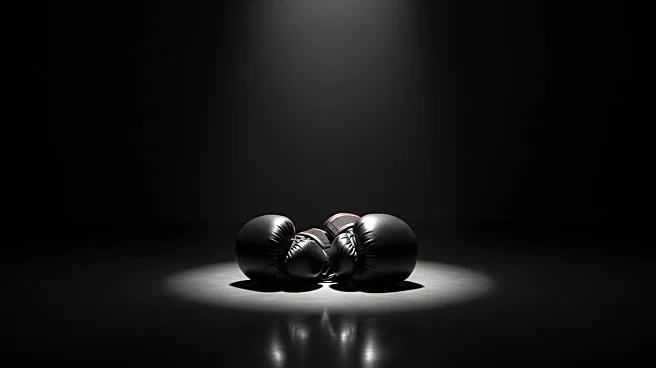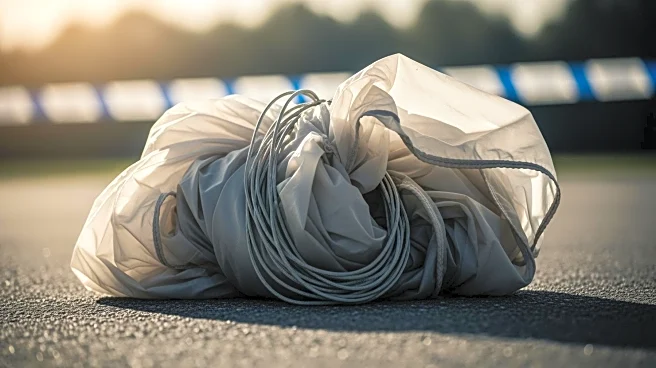What's Happening?
Ricky 'Hitman' Hatton, a former boxing champion known for his aggressive fighting style, has died at the age of 46. Hatton, who began his professional career with 43 consecutive wins, was found deceased in his home in Hyde, Tameside. Greater Manchester Police reported that there are no suspicious circumstances surrounding his death. Hatton was scheduled to return to the ring in December for a boxing event in Dubai. Throughout his career, Hatton held titles in the light welterweight and welterweight divisions, and retired in 2012 after a successful career marked by battles with depression. His passing has elicited condolences from figures in the boxing community, including former heavyweight champion Tyson Fury.
Why It's Important?
Ricky Hatton's death marks the loss of a significant figure in the boxing world, known for his dynamic fighting style and impactful career. His planned comeback was anticipated by fans and the boxing community, highlighting his enduring influence in the sport. Hatton's career achievements, including his victory over Kostya Tszyu for the IBF and The Ring super lightweight titles, cemented his legacy as a formidable boxer. His passing may affect upcoming boxing events and the athletes he trained, such as Tommy Fury and Chloe Watson, who have benefited from his expertise and mentorship.
What's Next?
The boxing community is likely to honor Hatton's legacy through tributes and memorials. His planned comeback event in Dubai may be reconsidered or transformed into a commemorative event. Athletes and trainers who worked closely with Hatton may continue to reflect on his contributions to the sport, potentially influencing their future training and career decisions. The impact of his death on the boxing industry could lead to discussions about mental health support for athletes, given Hatton's known struggles with depression.
Beyond the Headlines
Hatton's death underscores the challenges athletes face with mental health, particularly post-retirement. His career and personal battles may prompt broader conversations about the support systems available to retired athletes. The boxing community may explore initiatives to better address these issues, ensuring that athletes receive adequate care and guidance during and after their careers. Hatton's influence as a trainer and manager also highlights the importance of mentorship in sports, potentially inspiring future generations to pursue similar roles.










